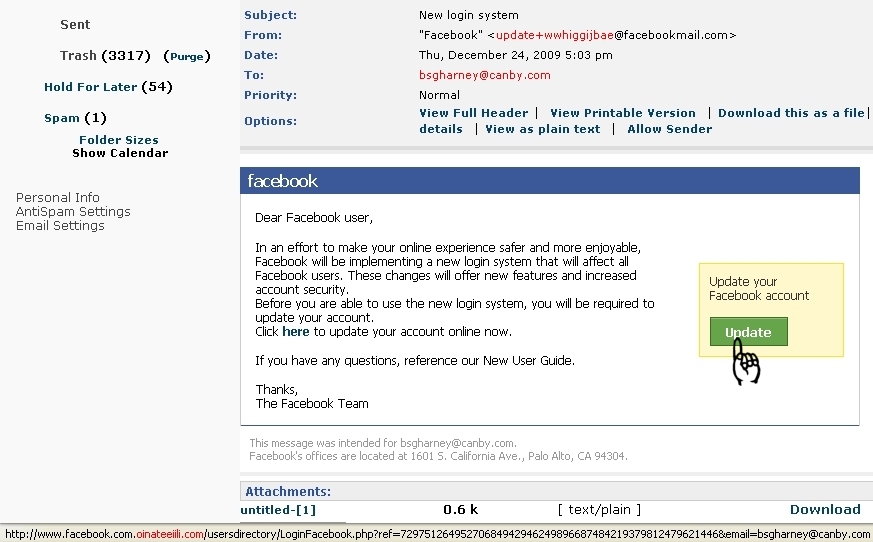It is not legit.
It’s spam, and likely of the bad kind.
Do not click any links in it.
In the image above, I made two clues be red font:
- That first email address doesn’t look real persuasive as a corporate address, does it now?
- That second email address ain’t me.
The third clue — the most important of all, really — lies in the links contained in the email.
Notice what shows up in the browser status bar (is that what it’s called down below?) when I put my cursor on one of the links:
Again, notice the red part. If you only read the first part of the URL, it looks like the link points to facebook.com — but you must keep reading till you get to the first forward slash. Then you’ll see the link doesn’t point to facebook.com at all.
If you didn’t know that yet regarding links, learn the lesson and remember it well!
PS: Thanks to the wonders of CSS, the above images are actually the same image. Click on either image above to see the full thing.
